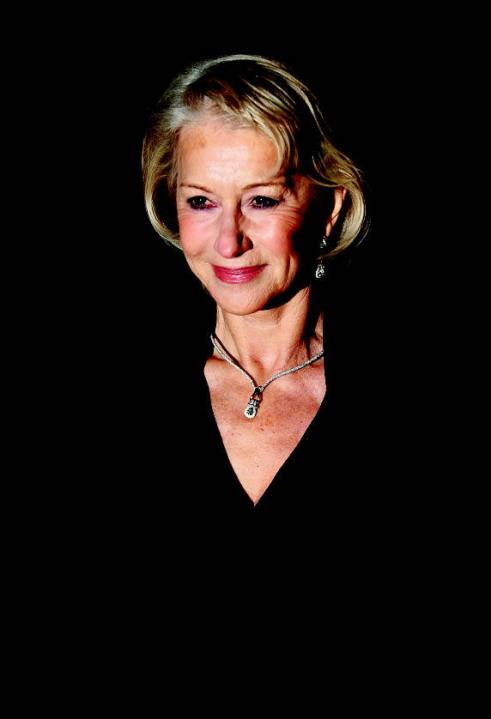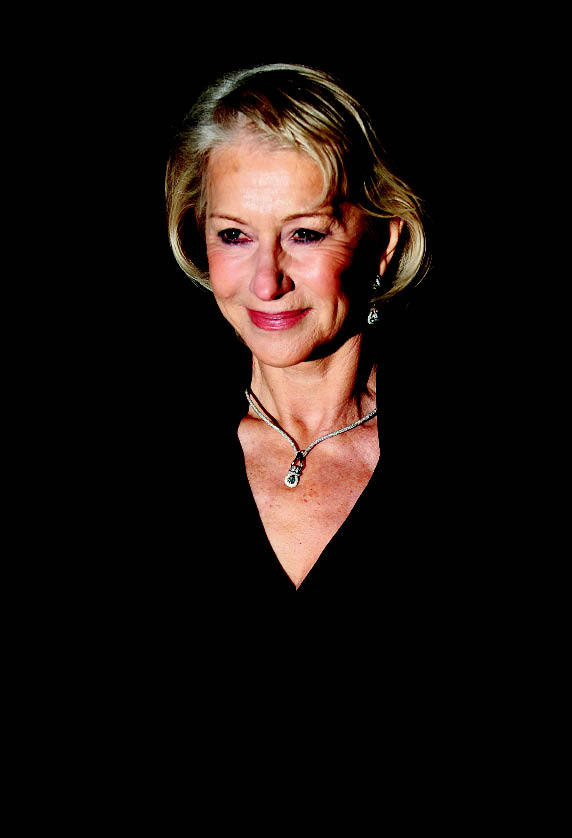Marianne Gray talks to Helen Mirren about her latest film, for which she’s had an Oscar nomination
The first time I met Helen Mirren was at the Berlin Film Festival in 1985 when she was playing a Russian cosmonaut called Tanya Kirbuk in Peter Hyams’s space epic 2010. She laughed about having to learn Russian phonetically so she could say ‘roll the condensers’ and ‘send up the pod’ with an authentic Moscow accent.
‘Sadly, those who could have helped me with my accent, people like my grandmother and my Auntie Olga, have died off,’ she lamented, showing me her passport with her real name, Ilyena Mironov, daughter of Vasiliy Mironov and granddaughter of a tsarist colonel who was negotiating an arms deal with the British government when the Russian Revolution broke and who ended up stranded, along with his family, in Britain.
Twenty-five years later she is still playing Russians, but this time in English, as Count Leo Tolstoy’s impassioned wife Sofya in The Last Station — a tale of love and a battle for estate rights set in 1910 during Tolstoy’s grim last days, for which she has received a Best Actress nomination in this year’s Oscars. Christopher Plummer plays the 82-year-old author of War and Peace, Paul Giamatti the fiery Chertkov and James McAvoy the idealistic Valentin.
‘I’m very happy and honoured for Christopher, myself and our film,’ is Mirren’s response to news of the nomination. ‘I think Tolstoy himself would have been perplexed by all this, but Sofya his wife would have been over the moon. So, in that spirit, I am too.’
‘I felt such an affinity with Sofya,’ she says in her gravelly voice when we meet over lunch at the National Theatre. ‘Apart from being one of the great women’s roles in film, she and I share a Russian heritage. It’s in my blood. My great-great grandmother was a Russian countess. That side of my family was Russian aristocracy (the other side was English working class) and I understood her. So often women’s roles are “long-suffering” but Sofya, who was a court physician’s daughter and 16 years younger than Tolstoy, doesn’t suffer anybody for any length of time. She is a wonderfully tempestuous and passionate person. She’s also very funny.’
Grande Dame of the Realm, Dame Helen, laughs. Like Sofya, she is tempestuous, passionate and very funny. One of the great sirens of the acting world (the thinking man’s sexpot who never simpered), she’s without side, a smart woman who seems to have been not noticeably altered by fame and fortune.
I recall her coming in haste from an evening shoot on Inkheart at Pinewood Studios directly to the Critics’ Circle London Film Awards at the Dorchester Hotel to accept an award for The Queen in 2007. A hotel room had been reserved for her so that she could change from daywear to evening gown but she’d already done it en route in the back of her chauffeur-driven car. She had a terrible cold and when she needed to blow her nose, she pulled out of her handbag a handful of loo paper rather than a dainty lace hankie.
Clearly her background is still part of her present and this inherited mixture seems to give her an ‘otherness’ which has intrigued audiences and served her well. She was born in London; her mother was an English butcher’s daughter, and her father, who changed the family’s name to something simpler than Mironov, became a cabbie first in London and then on the south coast of England, in Leigh-on-Sea, where Mirren grew up, a ‘convent girl just waiting to get away’.
She’s spent nearly 45 years as an actress, won a huge number of awards and given numerous memorable portrayals, like the Elizabeths I and II, as well as others that required her to disrobe unashamedly like Caligula and The Cook, The Thief, His Wife and Her Lover, many of Shakespeare’s most commanding heroines and television’s toughest detective, DCI Jane Tennison in Prime Suspect.
Now, at 64, she says she is planning for her new life, one with less acting, although there are seven Mirren film projects on the boil as I write. ‘I definitely look forward to having time to do other things, like mentoring and sharing, being more involved in charity,’ she tells me. (She donated the proceeds of her TV Oscar appearances for The Queen to Kids Company, a grassroots charity for inner-city young people who have suffered abuse and neglect.) ‘There’s a huge wonderful world out there full of things to do and I can’t think of anything that getting older has stopped me from doing. OK, I have about 30 pairs of specs dotted around the house and I don’t like loud parties but….’ She shrugs. ‘I want to make time to do something academic. Trinity College Dublin made me the honorary patron of the University Philosophical Society in 2007. It was one of the best nights of my life. I didn’t go to university and I feel a bit intimidated by it. I trained as a teacher but would have loved an intellectual life full of discussion and learning.’
Hardly lowbrow, she wrote what she calls a part-autobiography, part-family album, In The Frame: My Life in Words and Pictures (Phoenix), during a brief gap between shooting Inkheart and the American thriller State of Play. ‘I thought I’d never be able to write a book. In the past I was more interested in living life than writing about it. I didn’t even bank the encouraging cheque the publishers sent as my advance against royalties because I thought I couldn’t do it. But once I started I zoomed away and the publishers had to tell me to stop the writing!
‘I went through a whole process of self-discovery, revisiting my life while writing it. I realised what shape my life has taken and what my fundamental attitude has been and I think it’s been fantastic. I’ve obviously had dark moments or insecurities or people have been mean to me, but I’ve been lucky and I’ve been blessed. I feel like someone who has won the lottery.’
A Londoner at heart, she has a house in Wapping where she describes their life (she is married to the American director Taylor Hackford) as ‘low-key domesticity’. ‘I think both of us feel London is our true home. We have a lovely home in Los Angeles overlooking the beautiful Pacific Ocean, palm trees and sunny skies. Of course we go to the occasional glittering première and make films there but we when we come home we come home to London.
‘We try to live as green a life as possible under the circumstances. I’d like to get my own allotment in London. We love the Whitechapel Market/Spitalfields/Shoreditch side of the city. There’s no hassle. I get by unrecognised. Occasionally somebody does, but it’s not intrusive. First it was because of Prime Suspect, then I moved upmarket and became “the Queen”. But it’s not a problem.’
The Last Station is released on 19 February.






Comments